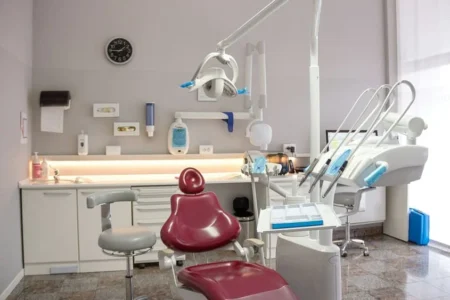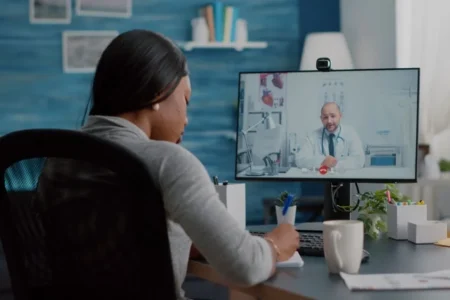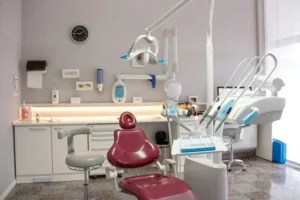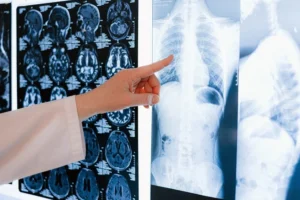Exploring the Future of Healthcare: The Intersection of Technology
- Updated on: Jan 3, 2025
- 3 min Read
By
- Published on Jan 3, 2025

The healthcare industry is going through a technological renaissance with cutting-edge advancements changing how diseases are diagnosed, treated, and managed. Innovations are upending healthcare systems globally, ranging from artificial intelligence (AI) to telemedicine, and making the provision of more tailored or efficient patient-centric care better than ever before. This intersection of two often-siloed sectors, marked by innovation and sometimes near-disruption has opened up infinite opportunities– whether it be supporting healthcare providers to deliver better care, or empowering patients to take their health into their own hands. The more technology is ingrained into the system, the better and easier it will be to provide good health care for everyone.
1. Telemedicine — Bringing Health to Your Doorstep:
The advent of mobile technology has led to successful developments in healthcare, with telemedicine occupying a prominent place. For some kinds of care, this means that patients can consult with healthcare professionals without ever stepping foot in for an actual visit.
Telemedicine, not only routine consultations of telemedicine but also specialist doctors, especially audiologist can do virtual hearing assessments or follow-up varieties using Tele-audiology. With further advancements, telemedicine will soon be a standard part of the routine practice of medicine and accessible to more patients seeking greater access to care from location convenience.

2. Diagnosis and Artificial Intelligence in Machine Learning:
Medical diagnostics is quite rapidly seeing the emerging field of Artificial intelligence (AI) and machine learning (ML), being powerful players as diagnosis tools. Using AI algorithms to manipulate large amounts of patient data enables side-by-side comparisons, helping doctors make faster and more precise diagnoses. Such as AI imaging systems that can identify visual clues in radiology scans better than any human professionals (thus detect cancer) and often before humans could even spot them.
Also, there is an increasing interest in generating AI tools to personalize medicine by modulating treatments on a patient-by-patient basis using genetic information and health data. As these technologies get refined, they hold the promise of augmenting diagnostic accuracy, eliminating human error, and in turn, improving overall patient outcomes.
3. Wearable & Remote Monitoring:
Another healthcare innovation is wearable devices. Wearable technology including devices such as smartwatches, fitness trackers, and medical-grade monitoring can collect live data about a patient’s health. By tracking heart rate and sleep patterns to monitoring glucose levels and blood pressure, wearables can continuously watch over our health so that potential triggers for disease can be identified before anything escalates.
In the case of audiologists, Bluetooth-enabled wearable hearing aids that can connect with smartphones lead to a better patient experience by facilitating remote tuning and custom configuration. The future of health care will be characterized by sophisticated types of wearables, providing powerful new forms of prevention and treatment for multiple conditions.
4. Blockchain for Security of Healthcare Data:
The more health-related data goes digital, the stronger its security should be. Decentralization provides enhanced security for sensitive health information, led by Blockchain technology. This in turn can substantially enhance electronic health records (EHRs) case-mix defense against cyber threats and keep information on an individual’s personal & medical records safe.
In addition, blockchain can simplify some of the bureaucracy in health care like billing and insurance claims to diminish fraud costs as well. Blockchain might evolve into a tent-pole of that digital transformation for health care, allowing patients and providers to safely access necessary health information.
In conclusion, the junction of technology and healthcare is leading us into an age where medical care can be more accessible, efficient as well personalized. Innovations: From Telemedicine and AI diagnostics to wearables and blockchain security, everything in Healthcare is evolving as these technologies advance, they will be critical to the enhancement of patient outcomes as well as being an enabler for overall greater healthcare. The healthcare professionals that we need in the future and driving change for both patients will help foster a healthier world.












